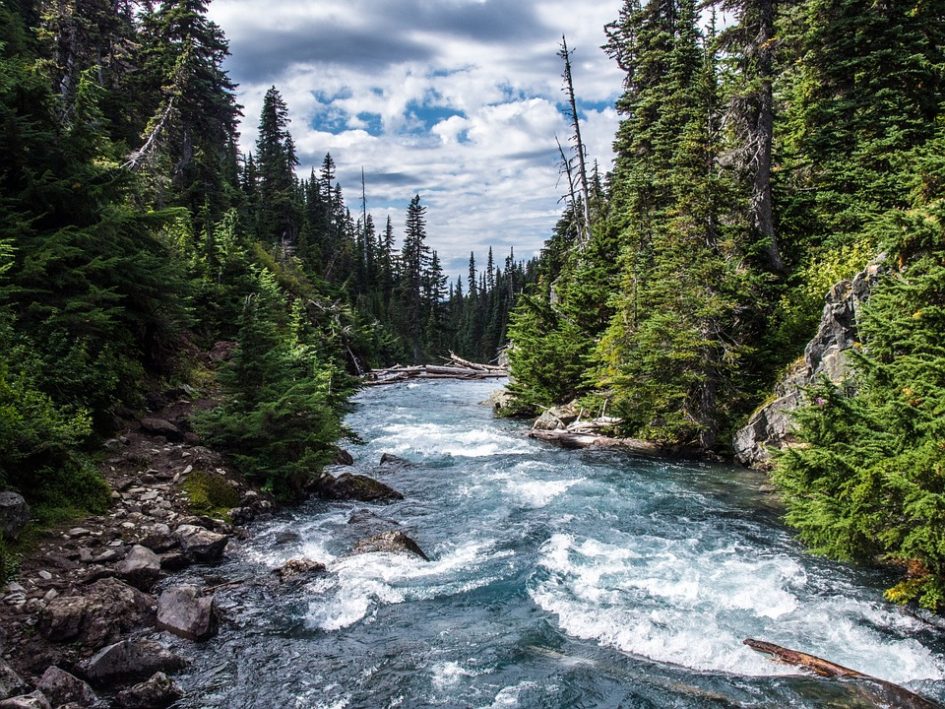Positions Available: 2
Project Title: The influence of seasonal prey subsidies on juvenile salmonid diet and impacts of invasive terrestrial plants on food web dynamics in South Fork Skokomish River
Position Summary: 2 positions available for field and laboratory assistants willing to commit to working late August 2018 through July 2019, some flexibility in duration.
1) Field work: 2 days per month with the possibility of camping overnight during sampling (~10-20 hours); fisheries field research working with juvenile salmonids
2) Lab work: 2 half days (~4 hours each day) per month of fish gut content processing, invertebrate ID, and data management
Research: I’m a graduate student in the Armstrong lab at Oregon State University working on seasonal prey subsidies to juvenile salmonid food webs with a focus on analyzing changes in terrestrial, aquatic, and marine inputs temporally as well as in the presence of invasive plant species in Washington State. My research has multiple field components as well as a lab component. Field work consists of 2 days of sampling every month (may range from 1 day to 3 days depending on catch) for a year (August 2018-July 2019) on the South Fork Skokomish River. Fish are non-lethally sampled for stomach contents, size, scales, and fin clip for stable isotopes. Invertebrates are sampled year-round and leaf litter bags in November/December. The lab component consists of identifying and measuring collected samples. Students will get hands-on experience with several field methods commonly used in fisheries research, fish identification, and data collection. If you’re looking to develop an undergraduate/graduate research project, we can discuss the options. I can’t add additional sampling due to permitting but there are opportunities (microbial communities on native vs non-native plants, nitrogen/lignin of plants, etc.).
Hours: Field sampling will be two consecutive days per month consisting of 10-20 hours. Days will depend on river flow so flexibility is essential to catch windows, especially in winter. We may need to sample two weekend days some months and two weekdays other months. Transportation from Olympia to research site/overnight location (when necessary) and gear (chest waders) will be provided. Laboratory sorting/ID of invertebrate samples has even more flexibility with half days preferred.
Duration: This is a 12-month project (3rd or 4th week of August 2018 through July 2019). Someone interested in committing for the full 12 months would be ideal, but we can discuss. Eligibility: Open to college students interested in fisheries/aquatic/ecosystems/ecology research work experience. • Field assistants must be available for two consecutive days each month with some flexibility due to unpredictable river conditions. • Assistant must be able to consistently follow set sampling and data collection protocols as well as be physically capable of working long days in remote settings and safely navigate streams. • Some juvenile fish handling experience is preferred, but not required. • Positive attitude, dependability, and good communication skills are essential. Benefits: This is an unpaid position. It’s intended as a learning opportunity for students looking to get hands-on experience. I can work with you to create an internship learning contract if you’d like to get college credit for this work. I can also provide advice on finding field jobs, references, or help applying for graduate school funding (I graduated from Evergreen with a BS in 2015 and am a current NSF GRFP fellow at OSU). Plus, if you’re motivated, there is the possibility of designing a piggy-back research project of your own.
Research Specialties: Fisheries science, Freshwater ecosystems, Stream-riparian food webs, Fish, Stream ecology, Riparian ecology, Limnology, Salmonids, Resource subsidies
If interested, please send me an email before August 15 and introduce yourself, background, interests, experience, academic/career goals, and availability. Megan Brady megan.brady@oregonstate.edu

